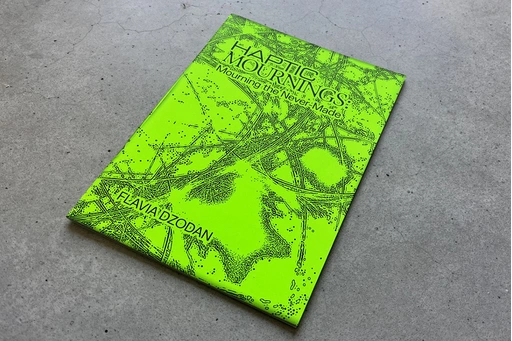The launch of the publication 'How Material Comes to Matter - Workshops as sites of collective resistance and reimagination' will take place on the 13th of March at 18:30 at San Serriffe, with guests Harriet Rose Morley and Clem Edwards with introduction by Anja Groten and Márk Redele.
The Materiality research group is presenting the publication: How Material Comes to Matter - Workshops as sites of collective resistance and reimagination. This publication evolved from a shared urgency among students, educators, and researchers to foreground the pivotal role of workshops and labs in art and design education, and to recognize them as critical and versatile spaces for collaborative learning and material-driven inquiry.
A hardcopy of the publication is available for 10 euros: shop.rietveldacademie.nl
A free online version is available on: etherport.org
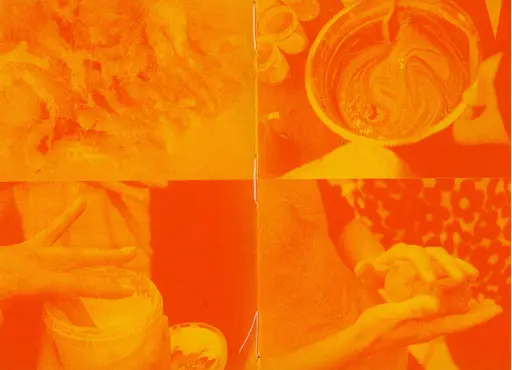
The Art & Spatial Praxis research group is proud to announce the publication of three new contributions on its Plot(ting) platform. Each of these articles explore language and its various registers; the colonial historicity of form, identity and structure; the affective, imaginative and reparative possibilities to be found in the midst of manufactured chaos.
The Art and Spatial research group is delighted to share a series of videos, presented as the culmination of the ‘Tactics of the Plot’ working group. You can watch the video series below and on the research group’s Plot(ting) platform, available here: plotting.rietveldsandberg.nl/?page_id=1056
On November 19, 2025 the Material Library organised the first Material Assembly. Together with a group of students, we followed the material traces of the trees felled on the neighbouring plot of the academy and visited the sawmill of Stadshout in Ouderkerk aan de Amstel.
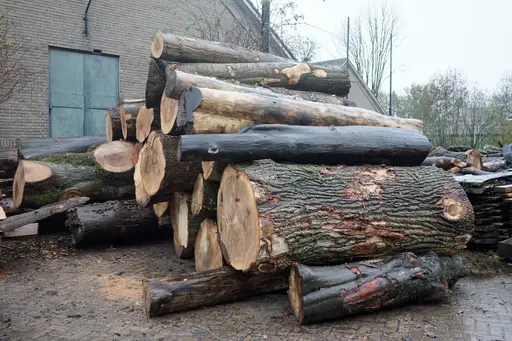
On Wednesday November 26, 2025, together with a group of students and teachers, we had the rare opportunity to visit and work in the Atelier building of the Rijksmuseum and NICAS (The Netherlands Institute for Conservation+Art+Science+). We were introduced to the workshops and laboratories at NICAS exploring different temporalities of art-making through the lens of material-based research. After that, we received a tour with presentations at four conservation studios: Textiles, Inks and Pigments (RCE), Furniture, Imaging Room. We ended with a guided conversation, collective mapping exercise and reading that attempted shifting our gaze from the moment of the now to the wider temporal dimension of conception, development and multiple phases of becoming what we perceive today of an artwork. We focused on the long and arduous processes that precede the perception of an artwork as a finished product. How can we unravel materials and techniques used in artworks? And does this affect the meaning of the artwork in the present?
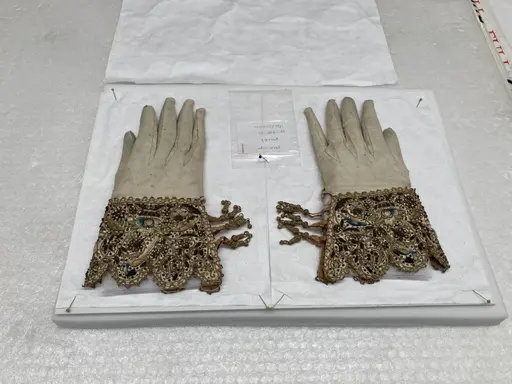
On September 30, 2025 we gathered for the closing of the Loom residency. Loom has been developing their artistic research project Rhine river rehearsal – reimagining a river with the Art & Spatial Praxis research group. On September 30 we followed their audio tour Leaky Turns, Stories from Amsterdam's Waterlands and heard more from their past year of research and residency. Take a look at the video made by Yana Khazanovich and photos made by Konstantin Guz. The podcast can be listened in your podcast app or here .
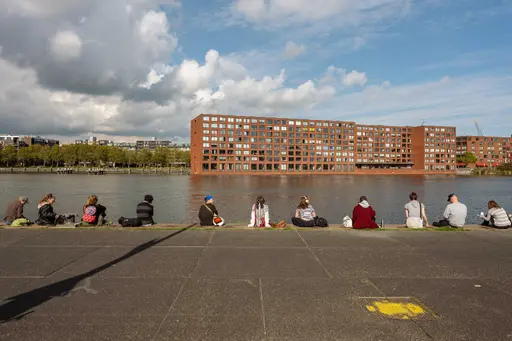
What becomes of water when we look at it through the lens of different artists and researchers? And how might it assist us in looking at the world differently? Seven practitioners individually welcome us to a water-related place in Amsterdam, and explain what this place tells us about water when we listen, look, and think carefully. Each interview is preceded by a listening exercise, guided by the voice of the interviewee; intimately connected to their chosen location. These recordings can be experienced onsite, or wherever you find yourself, with a moment to spare.
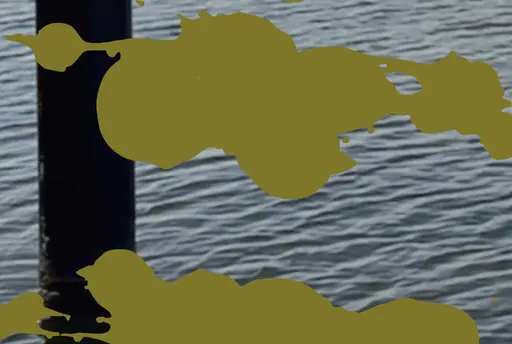
Loom, practice for cultural transformation, has been developing their artistic research project Rhine River Rehearsal – reimagining a river with the Art & Spatial Praxis research group. Next to the audio tour Leaky Turns , they made the publication Rhine River Rehearsal.
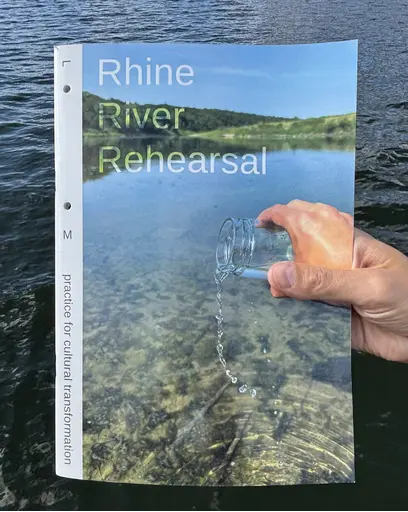
Rietveld Sandberg Research is delighted to share that a consortium led by Anja Groten, Head of Sandberg Design has been awarded funding by the Taskforce for Applied Research SIA (part of NWO) under the Artistiek en Ontwerpend Onderzoek 2025 scheme. “Connecting Otherwise: Developing artistic/design research methodologies and workshop formats for regenerative digital practices” will run from September 2025 to August 2027 with a subsidy of € 125,000 supporting the development of interdisciplinary workshop formats exploring regenerative aesthetics and the materiality of digital technologies through hands-on and collective research approaches.
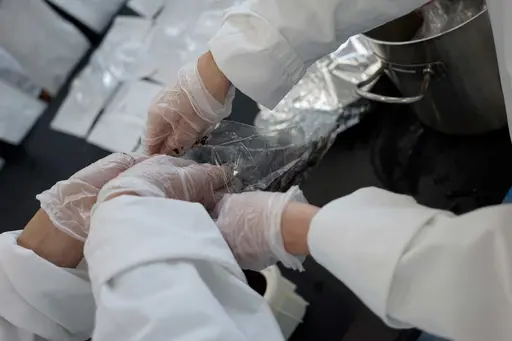
The latest issue of the Boekman magazine explores the theme of ‘Culture as a problem solver’ and examines the role of art and culture in solving social issues. Laura Cull Ó Maoilearca, Sabine Niederer, and Patricia de Vries wrote about the Climate Imaginaries at Sea project in the article ‘Klimaatverbeelding als artistieke praktijk - een ander perspectief op klimaatverandering’.
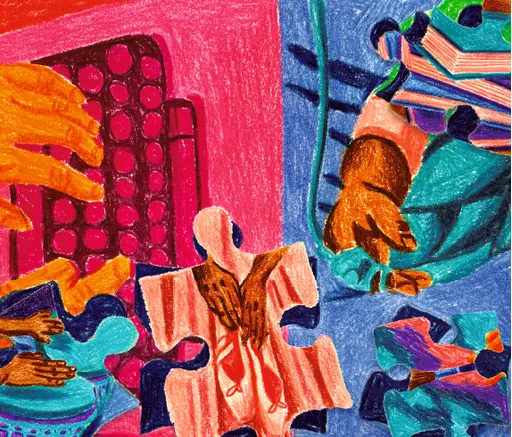
Our colleagues at ARIAS produced a four-part podcast series [un]learning scripts. What does it mean to [un]learn scripts? Different guests answer this question by bringing forward their practices and ways of knowing through topics like storytelling, archives, touch, emotion, rehearsal, and illness. Together, they seek to understand which stories matter and for whom, and to challenge the limiting, violent, and dominant scripts guiding the specific roles we perform in modern society. These scripts, however, are not written in ink - there are always possibilities to rewrite, revise and redefine them.
The Art & Spatial Praxis research group is proud to announce the publication of three new articles featuring queer and anti-colonial perspectives on its Plot(ting) platform.
In this opening episode of Restless Grounds, we dive into the entangled histories of magic, technology, and capital. Our conversation explores how belief systems—from Enlightenment science to tarot, commodity fetishism to algorithmic “intelligence”—shape not only how we relate to technology, but how technologies are designed to relate to us. Host Mariana Fernández Mora is joined by Flavia Dzodan, Zachary Formwalt, and Carlo De Gaetano to think through magical thinking as both a historical foundation for Western science and a critical tool for deconstructing algorithmic systems today.
The online publication "Fellows Published 2022-2023" is launched. The process and findings of the fellows who conducted their research in 2022 and 2023 are made accessible here. Contributors are: Aaro Murphy, Alaa Abu Asad, Andrea Lopez Bernal, Charlie Clemoes, MELT (Ren Loren Britton & Iz Paehr), Olya Korsun, Patricia Domingues, Sandra Golubjevaite and Zaïra Pourier.
Take a look at the online publication here: 2023.fellowspublished.rietveldacademie.nl/
The latest issue of 'Wijsgerig Perspectief' (Amsterdam University Press) is dedicated to the work of Sara Ahmed. Ahmed is renowned for her groundbreaking contributions to feminist theory, phenomenology, cultural studies, queer theory, and critical race theory. This issue features a contribution from Patricia de Vries (lector Art & Spatial Praxis), who also served as its editor.
In 2019, Maia Gattás and Francisca Khamis Giacoman met in the West Bank. Their correspondence, rooted in shared memories and layered histories, explores how water shapes Palestinian landscapes, experiences, and diasporic connections. The first four letters have traced a path across Bariloche, Santiago, Amsterdam, and Palestine—interweaving memory, geography, and resistance. This week, we share the final two letters in their epistolary exchange.
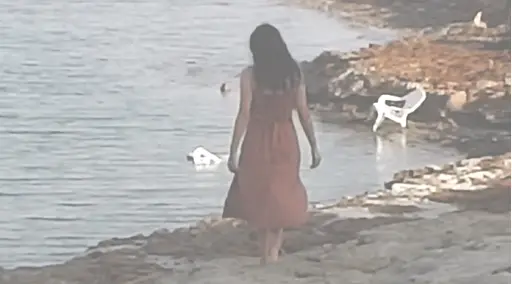
On 28 November 2024, Müge Yılmaz gave her end of residency lecture and launched the first edition of the booklet series "Future Guide for the Salty Forager". Set in 2124, this practical and imaginative foraging guide offers insights on gathering, living with, and consuming salty plants for future readers.
On November 28, Müge Yılmaz gave her end of residency lecture and launched the first edition of the booklet series "Future Guide for the Salty Forager". Besides, we experienced a performative salt-resistant bite by the Brackish Collective. Katía Truijen and Radna Rumping from Loom, practice for cultural transformation, gave their start of residency lecture and introduced their research project "Rhine River Rehearsal – Reimagining a River." Take a look at the video and photos here.
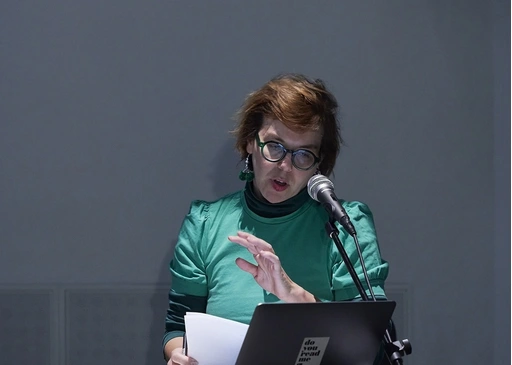
The Gerrit Rietveld Academie congratulates Femke Herregraven on obtaining the title of Creator Doctus (CrD) on 14 November 2024. CrD is a project developed at the Gerrit Rietveld Academie that seeks to realise a new European third cycle award for higher arts education.
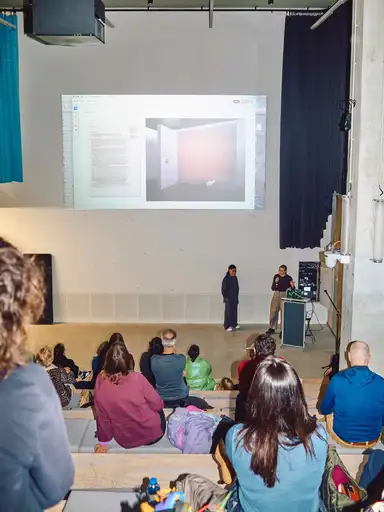
Flavia Dzodan held her inaugural lecture on November 26th on the impossibilities of algorithmic translation. "Amorino Latente/ Latent Cupid” revolves around the translation of art and its emotional impact through algorithmic and computational processes. Take a look at the video & photos of the event.
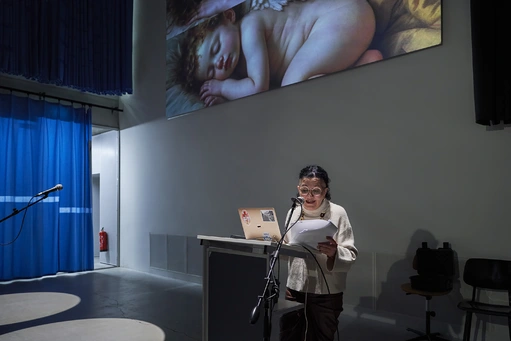
During the symposium and round table discussion on Algorithmic Cultures on the 6th op December 2023, Flavia Dzodan launched her new essay ‘Haptic Mournings; Morning the Never-Made' about our increasing blurring relation to the digital world, the imagined and real.
